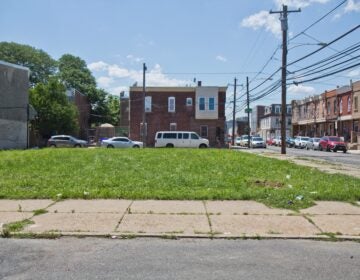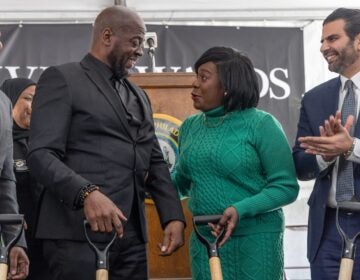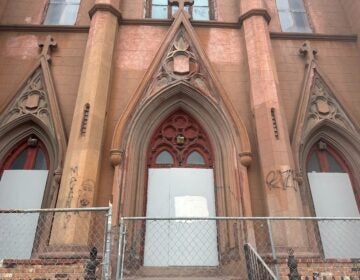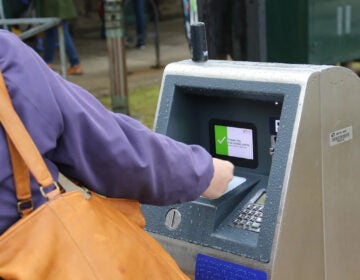Philly training program seeks to increase city’s supply of affordable housing
Since launching in 2015, Jumpstart Germantown has issued more than $50 million in loans to help new developers renovate vacant single-family homes.
Have a question about Philly’s neighborhoods or the systems that shape them? PlanPhilly reporters want to hear from you! Ask us a question or send us a story idea you think we should cover.
From a North Philadelphia rowhouse, Kingzakariyah Martin hopes to launch a career in real estate development dedicated to helping residents in his community.
He bought the three-bedroom property in a tax sale nearly four years ago. In the coming weeks, he’ll put it on the market with hopes of turning a profit he can plow into his next project.
“I haven’t completed much in my life so this is probably the most, outside of my children, this is probably the most important thing that I’ve completed that I’ve given to the world. So I just want to keep building on that,” said Martin, 33.
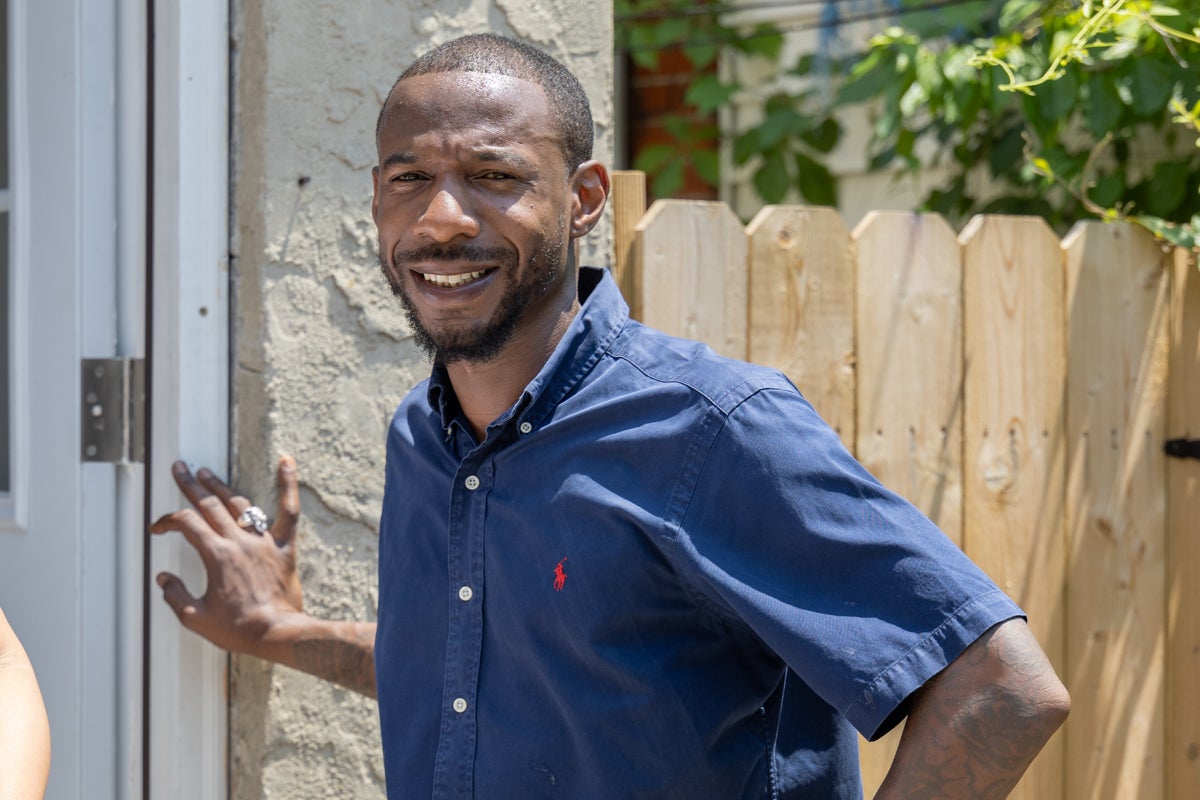
Martin took on the project after his partner told him they were expecting a daughter. At the time, he was driving for Uber and DoorDash and saw the property as a sound financial investment for his family.
He was also motivated by the city’s affordable housing crisis and vivid memories of his mom crying in the street after an eviction.
“People need housing. They need adequate housing. If I can mitigate that starting with myself and my family and then others in my community by providing affordable housing, making sure folks are housed in whatever shape, way or form, I think that’s what drives me is to keep people in their homes.”
Martin was able to fix up the property through Jumpstart Germantown. Launched nearly a decade ago, the citywide training program is designed to help new developers find their footing in the industry and create a pipeline of affordable housing in the process.
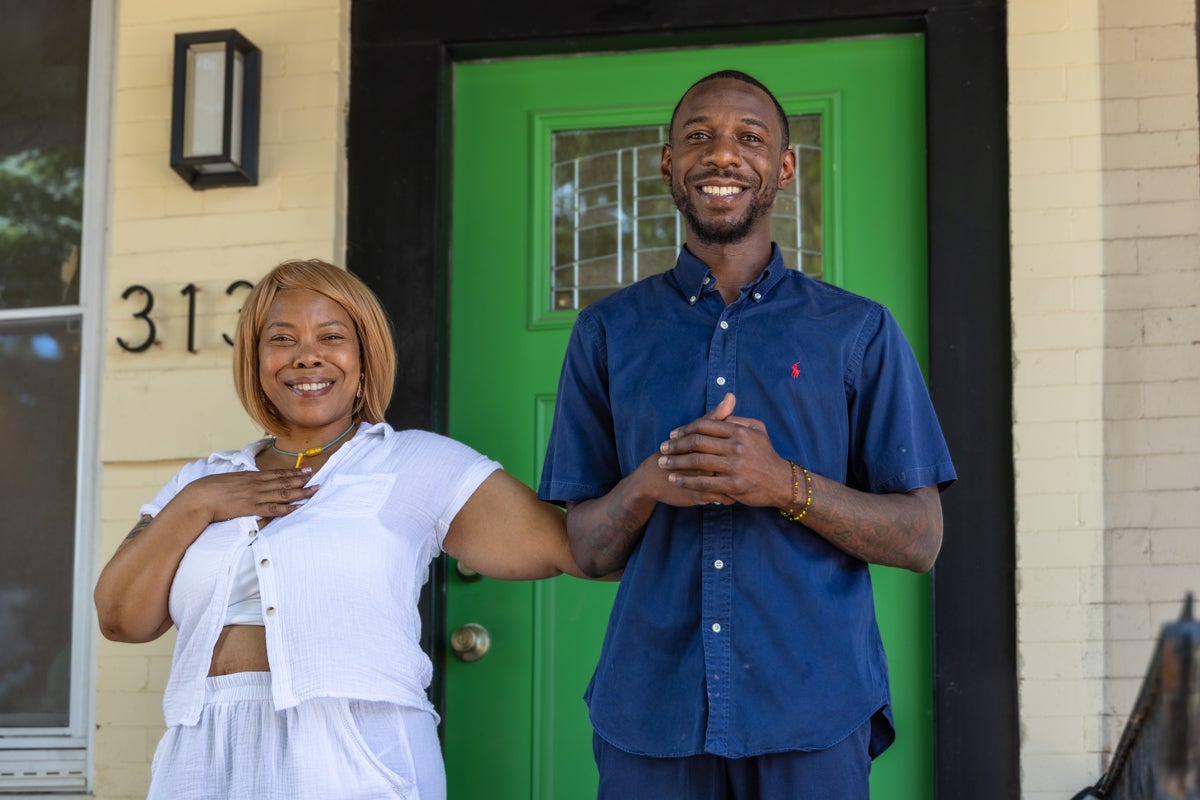
The goal is to remove blight by increasing the city’s supply of what’s known as workforce housing — a form of affordable housing that’s easier to build because it doesn’t require public subsidies to finance.
Jumpstart, which also operates in a handful of states, defines workforce housing as housing that is affordable to people earning between $40,000 and $80,000 a year.
“We are showing local residents what we call impactful investing instead of just single bottom-line investing and making a profit. We’re showing people how to remove blight from the community, how to produce affordable housing for their community, and how to improve their community with less displacement,” said founder Ken Weinstein.
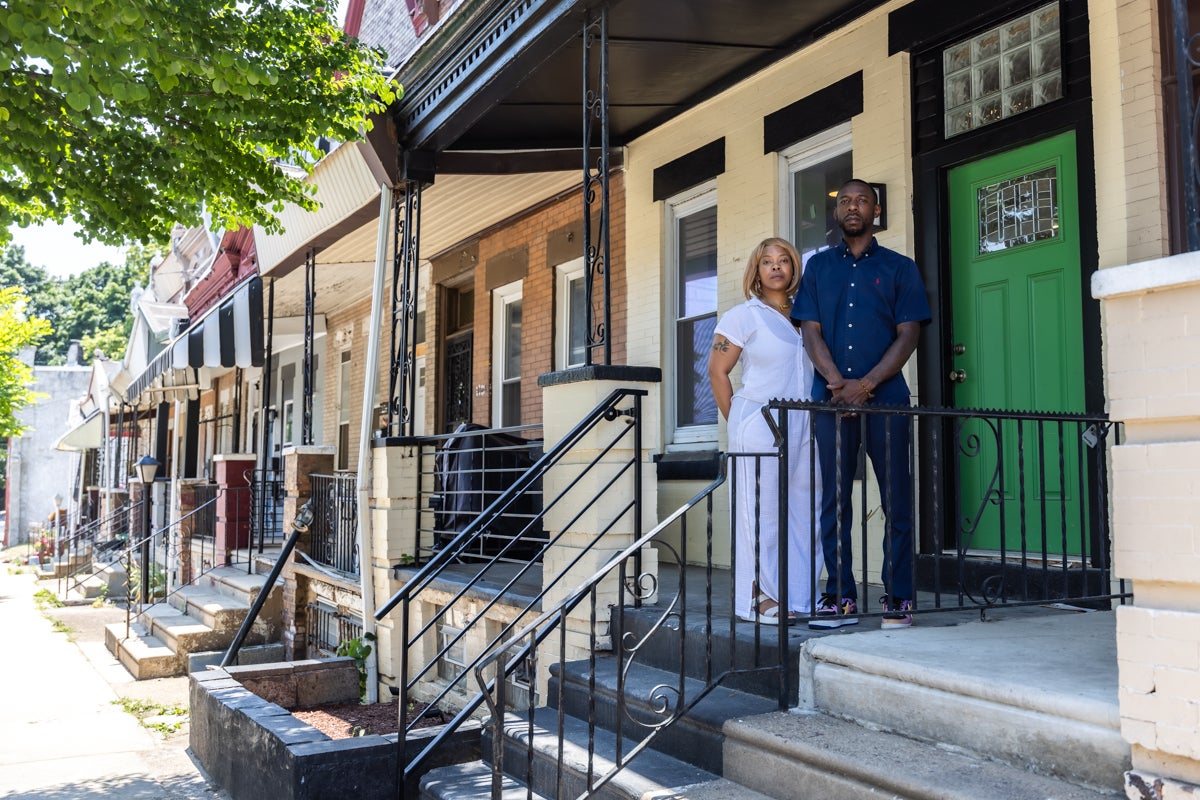
Weinstein created Jumpstart after receiving a slew of requests from aspiring developers who wanted his help getting started in the industry. By then, Weinstein had more than 30 years of experience as a real estate developer. What he didn’t have was enough room in his schedule to mentor everyone seeking his guidance. He figured a program could solve the problem.
Jumpstart is specifically geared towards generating housing in middle neighborhoods. These are neighborhoods with reasonably priced real estate that are neither rapidly gentrifying nor “grappling” with concentrated poverty, according to the Reinvestment Fund. The majority of Philadelphians live in these communities.
The $125 program includes 16 hours of instruction that teaches participants the basics of real estate development, including how to source a property, find financing and procure permits. The program also provides mentoring and help securing acquisition and construction loans with below-market interest rates.
Graduates, who must put up some of their own money, use the loans to buy and renovate single-family homes to sell or rent. Under the program, the expectation is that each project will take 12 months to complete. Borrowers don’t have to start repaying the loan until construction is finished.
Vincent Reina, faculty director of the Housing Initiative at the University of Pennsylvania, said Jumpstart provides financing for projects that banks don’t typically give out, enabling the program to increase the size and diversity of the pool of developers who can participate.
“By virtue of doing those kinds of multiple things, the premise of this program is a really unique one and really a potentially powerful one in a city like Philadelphia,” said Reina.
After saving the property from foreclosure, Martin secured an $80,000 construction loan through Jumpstart and got to work.
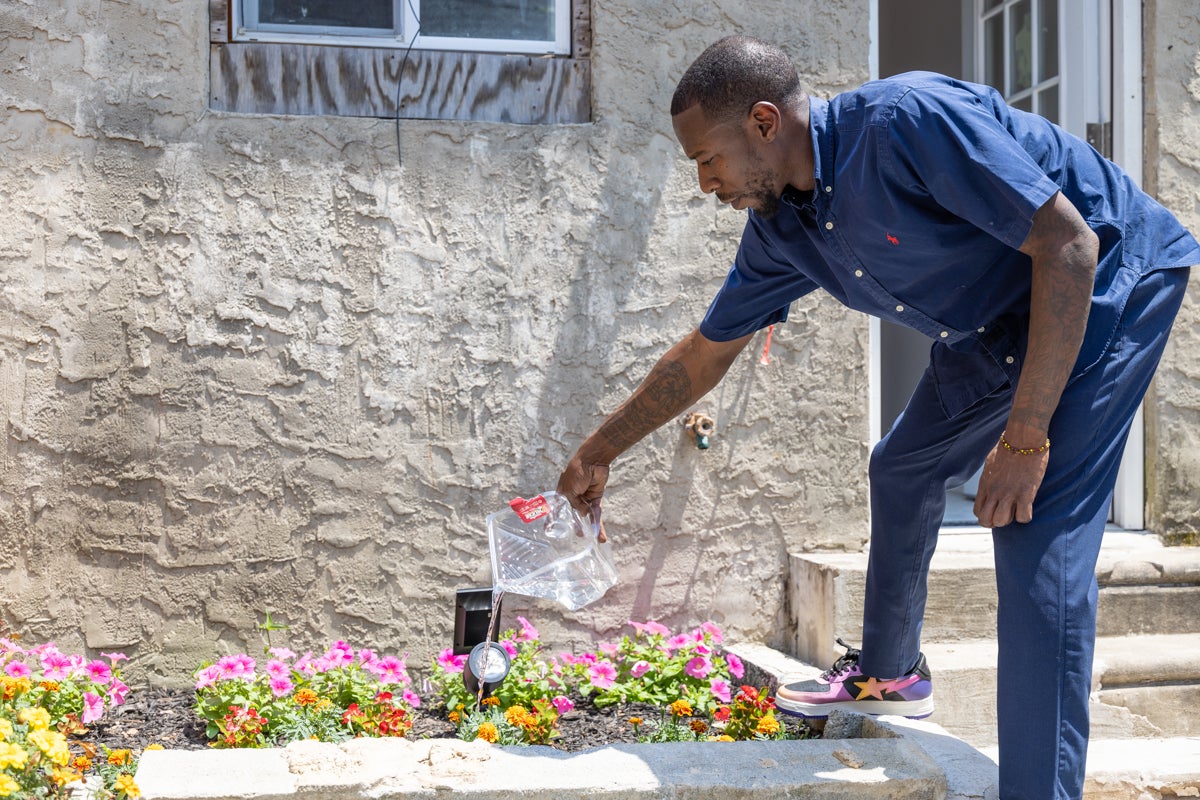
He says the home was in a sorry state — a rotting shell.
“This was a total gut rehab,” said Martin. “Due to rain and excessive erosion and rot, it was just a soft piece of wood. So we had to tear down the entire thing and rebuild it back up.”
The downstairs now has more of an open-concept floor plan after Martin demolished a middle staircase. He also installed a new bay window on the first floor and, with the help of his sister, completely overhauled an overgrown backyard.
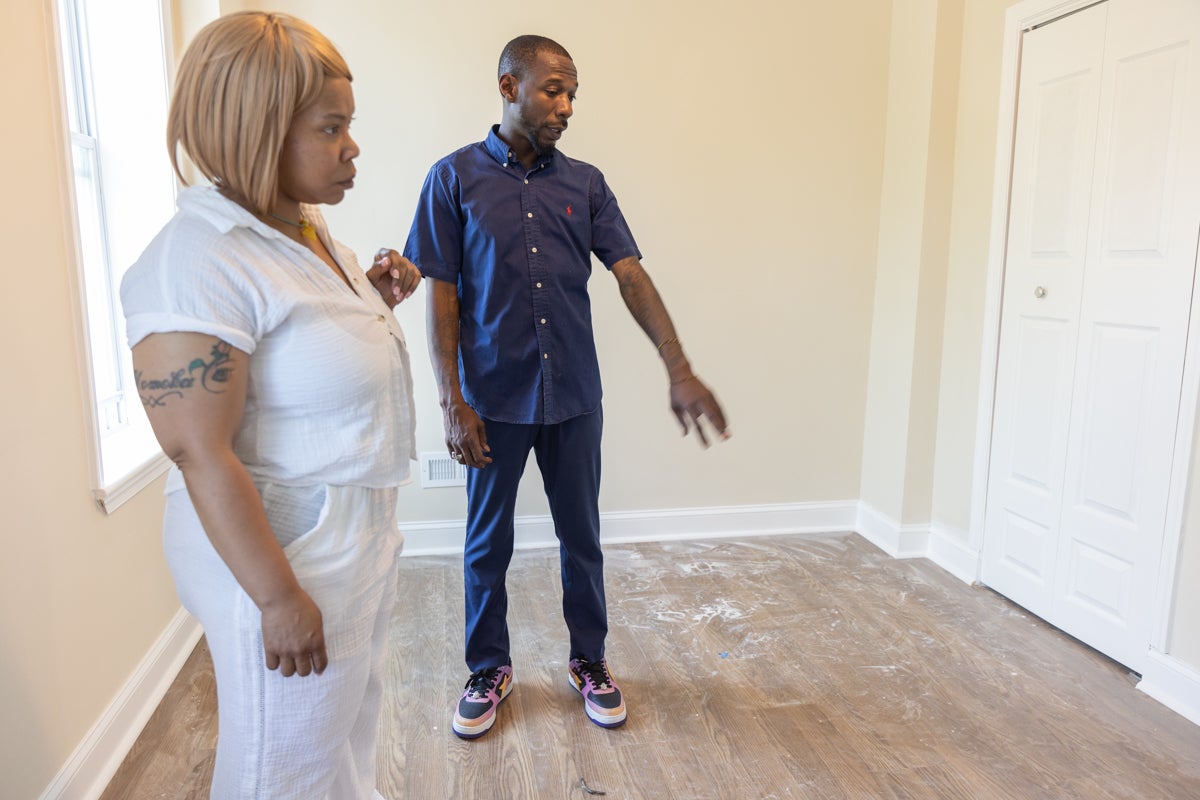
“We’re looking to list as soon as possible. We just want to make sure everything is working. We don’t want anybody to buy a house and they’re calling to say ‘oh this doesn’t work, that doesn’t work,’’ said Martin.
He hopes to sell the property for around $200,000 — a figure well below the median sale price in Philadelphia.
He’s already got his sights set on his next project.

Subscribe to PlanPhilly
WHYY is your source for fact-based, in-depth journalism and information. As a nonprofit organization, we rely on financial support from readers like you. Please give today.



